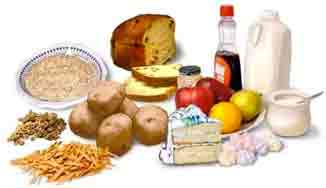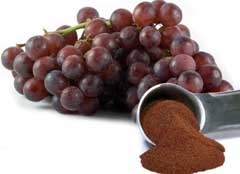 Carb blockers are essential to anyone with weight loss ambitions, more and more supplement manufacturers are producing carb blockers, and potential carb blocker users are spoiled for choice.
Carb blockers are essential to anyone with weight loss ambitions, more and more supplement manufacturers are producing carb blockers, and potential carb blocker users are spoiled for choice.
Carb blockers are nothing new though. They’ve been around for a long time. They used to be marketed as starch blockers, but fell out of favour with the dieting crowd about 30 years ago and all but disappeared from the marketplace.
They began to make a comeback in the middle of the 2000s; with the renewed interest probably being largely attributable to an increased interest in low carb dieting methods.
As the name suggests, carb blockers are designed to interfere with the amount of carbohydrate the body is able to absorb, but before going into why and how this is achieved let’s take a look at the role of carbohydrate in the diet.
 We recommend Activ8X diet drops as a highly effective carb blocker. It contains grape seed extract and panax ginseng – two natural ingredients extensively studied and documented to reduce the effect of consuming to high a quantity of carbohydrates.
We recommend Activ8X diet drops as a highly effective carb blocker. It contains grape seed extract and panax ginseng – two natural ingredients extensively studied and documented to reduce the effect of consuming to high a quantity of carbohydrates.
“Being a vegetarian, carbs are a huge part of my diet so I was always worried about dieting in case I had to cut out carbs completely. But with Activ8 X I love how I can still eat as many carbs as I want and still lose weight.”
The Power of Carbs
Content
 Simple and complex carbohydrates are the body’s favoured calorie providers. Calories are the fuel that provides the body with the power it needs to go on functioning and every action, no matter how small, involves the burning of calories. Intense exercise, such as performing heavy lifting tasks or running, expends more calories, but how the calories are used up is of no matter.
Simple and complex carbohydrates are the body’s favoured calorie providers. Calories are the fuel that provides the body with the power it needs to go on functioning and every action, no matter how small, involves the burning of calories. Intense exercise, such as performing heavy lifting tasks or running, expends more calories, but how the calories are used up is of no matter.
The important thing to remember is the body needs to replace them and it usually achieves this by extracting calories from food. If the food supply is restricted though, or contains an inadequate amount of calories, the body has to obtain its energy from elsewhere and will begin to utilize the calories stored as body fat by initiating the fat burning process.
If the diet provides too many calories the body will have more than it needs so the extra calories are then stored as fresh deposits of fat. If this happens too often obesity is the result.
Points to Remember
- Carb blockers and starch blockers are the same thing
- Carbohydrate is the body’s main calorie provider
- When the body is provided with an excess of calories it stores them as body fat
- Carb blockers prevent the body from breaking down carbohydrates and releasing their calories
- Carb blockers will be of little benefit if the excess dietary calories are the result of eating too much fatty food
- Most carb blockers contain phaseolus vulgaris (white kidney bean), grape seed extract or panax ginseng
- Some carb blockers may contain unnecessary filler ingredients
- The use of carb blockers may result in stomach discomfort
How Carb Blockers Work
Carb blockers are generally taken just before eating or up to half an hour before a meal. The active ingredient then interferes with the intestinal digestive enzymes (amylase and alpha glucosidases) required to break down carbohydrates and free the calories they contain. This results in the carbohydrate passing through the body undigested and no calories are released. The lowered calorie intake makes weight gain unlikely and if the amount of calories available falls too low the body will then have to begin metabolizing body fat and weight will be lost.
Suitability
Carb blockers are not the best option for everyone. They will probably prove to be most effective for people who eat high carb diets (including the simple carbs attained from sweets and sugary foods).
In the case of most people, who eat an otherwise balanced diet but are obtaining too many calories due to overeating and/or a sedentary lifestyle, carb blockers may also prove effective.
[info]If the excess calories are the result of eating too much fatty food though, carb blockers will do little to alleviate the problem. Their value as a weight loss aid is limited to their primary function only—they block carbs. That’s it. Nothing more.[/info]
Key Carb Blocking Ingredients
Most modern carb blockers rely on ingredients such as phaseolus vulgaris (white kidney bean). How effective this ingredient is likely to be is disputable. After a study conducted at the Georgetown Medical School (later published in the Journal of the American College of Nutrition) the researchers concluded the results ‘clearly show that this agent works’, but many other bodies including the U.S. Food and Drug Administration do not agree and some experts say the body produces too much amylase to be effectively blocked.
 Another ingredient that has gained in usage is Grape seed extract. Grape seed extract inhibits the two enzymes alpha amylase and alpha-glucosidase, the two enzymes responsible for carb digestion. A study found that grape seed extract inhibited high quantities of the two enzymes thus acting as an effective carb blocker. [source]
Another ingredient that has gained in usage is Grape seed extract. Grape seed extract inhibits the two enzymes alpha amylase and alpha-glucosidase, the two enzymes responsible for carb digestion. A study found that grape seed extract inhibited high quantities of the two enzymes thus acting as an effective carb blocker. [source]
Some carb blockers also contain additional ingredients that serve as little more than fillers. Such additions offer no carb blocking benefit and may present the risk of side effects; so it is important to take careful note of all ingredients used in any carb blocking product before making the decision to purchase.
Some Possible Carb Blocker Side Effects
The use of carb blockers can result in excess gas, stomach cramps, and diarrhea. Their use may also lead to low blood sugar issues that may manifest themselves in the form of light-headedness and/or dizziness. It must be stressed though that in the main adverse reactions are rare.

Be the first to comment